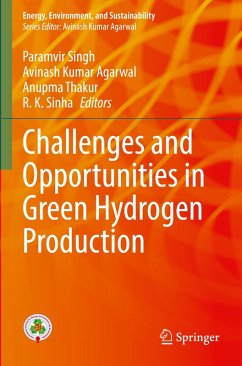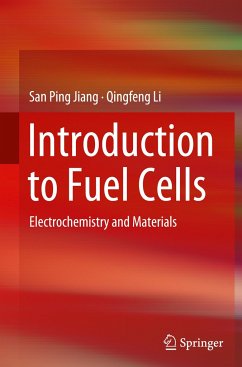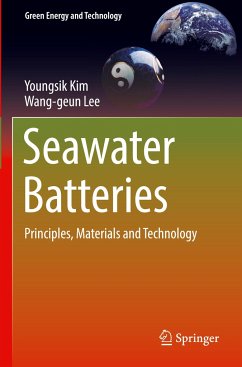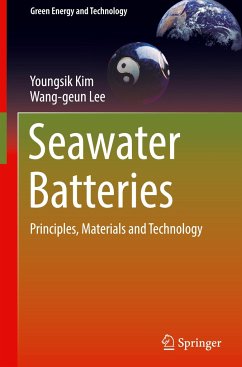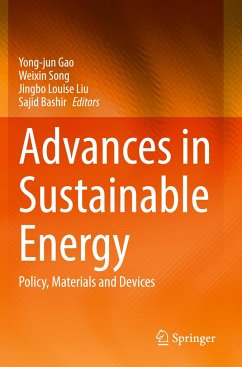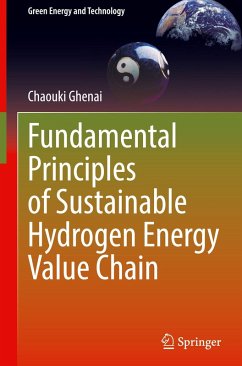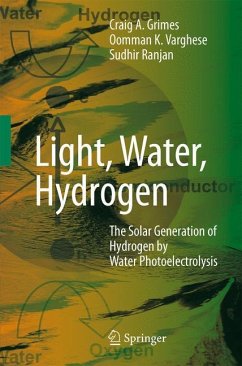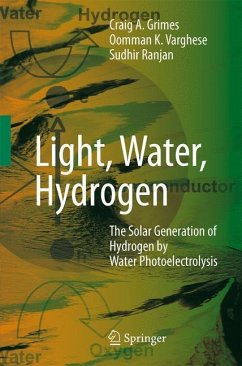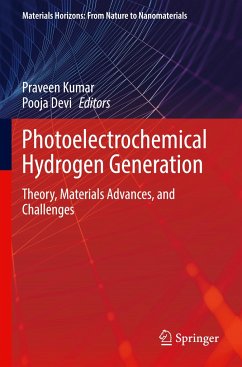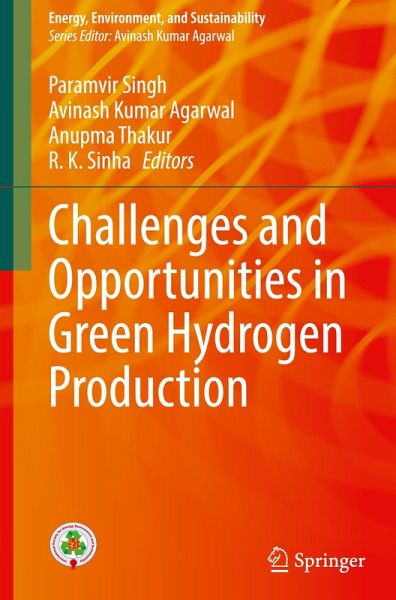
Challenges and Opportunities in Green Hydrogen Production

PAYBACK Punkte
54 °P sammeln!
This book comprehensively explores the dynamic landscape of green hydrogen, a transformative energy carrier. It offers a resource for researchers, professionals, and policymakers in sustainable energy. Starting with foundational understanding, it delves into hydrogen's importance, production methods, and climate change mitigation. This timely contribution addresses a knowledge gap by integrating green hydrogen's multifaceted aspects. By integrating multifaceted aspects, from fundamental principles to cutting-edge applications and societal implications, it provides a holistic grasp of green hyd...
This book comprehensively explores the dynamic landscape of green hydrogen, a transformative energy carrier. It offers a resource for researchers, professionals, and policymakers in sustainable energy. Starting with foundational understanding, it delves into hydrogen's importance, production methods, and climate change mitigation. This timely contribution addresses a knowledge gap by integrating green hydrogen's multifaceted aspects. By integrating multifaceted aspects, from fundamental principles to cutting-edge applications and societal implications, it provides a holistic grasp of green hydrogen's scientific, technological, and policy dimensions. The book navigates the intricate journey of green hydrogen production, spotlighting catalytic and technological breakthroughs, renewable energy integration, electrolyzer systems, and material strategies. Industrial applications and environmental impacts are detailed, covering life cycle assessments, water use, land considerations,and policy insights. This book caters to a diverse readership invested in sustainability and renewable energy transition. This book's multidisciplinary expertise guides the energy transition, fostering informed decision-making and inspiring collaboration. Policymakers, entrepreneurs, environmental experts, and researchers can find crucial implications, gain strategic insights, and explore ecological aspects. It endeavors to equip stakeholders with the knowledge, insights, and foresight needed to usher in a sustainable energy paradigm.



